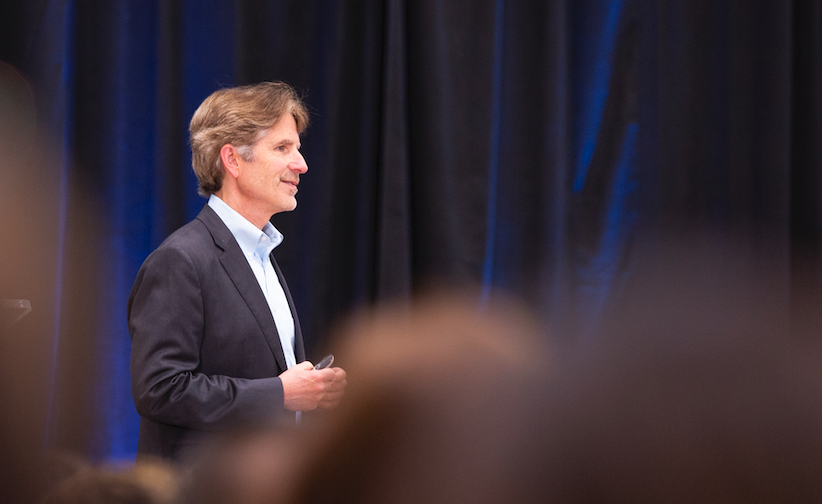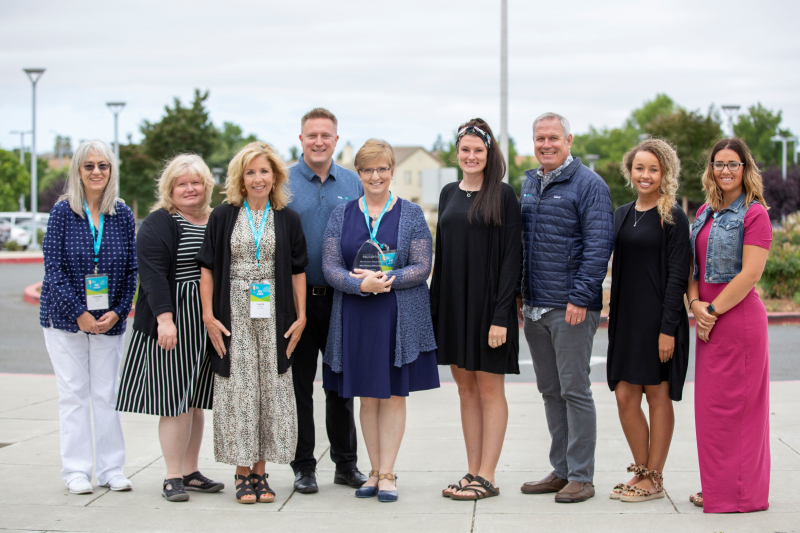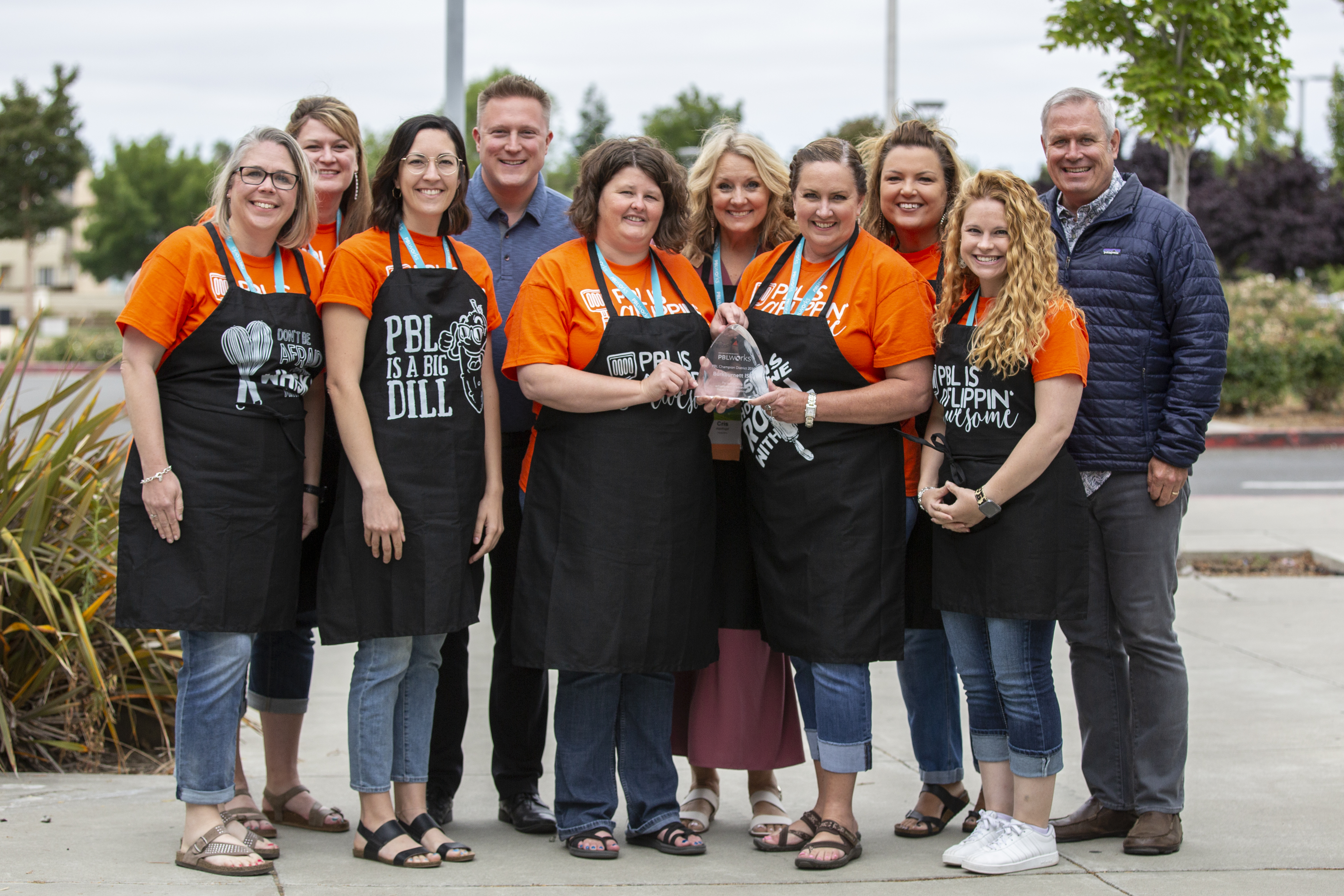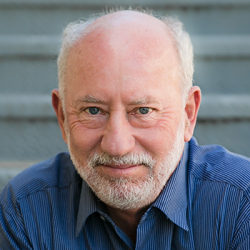
Oh, to be a visitor to Ron Berger’s basement. That’s where, for 44 years, this lifetime educator has been collecting evidence of student learning that unfolds through high-quality PBL. He calls it “beautiful work.”
On Day 3 of PBL World, Berger shared a few compelling examples with a global audience of 1,400 educators. He inspired them to think expansively about the beautiful work their students will be producing when they implement PBL. This evidence of learning “is not just artistic work,” he said, but includes beautiful work in mathematics, language arts, science, and even “beautiful acts of social justice and kindness.”
The author of six books and chief academic officer of EL Education, Berger has been designated the PBL Champion for 2019. It’s a fitting honor. He is widely known for his three rules for effective feedback: be kind, be specific, be helpful. He demonstrates the power of that feedback to guide learning in the “Austin’s Butterfly” video that thousands of educators have learned from—including those attending PBL 101 workshops this week.
In his keynote, Berger recognized the groundswell of PBL interest around the world. “You are the ambassadors of this movement,” he told the audience.
He reminded them that PBL is not a new idea. It’s how he designed learning experiences for students throughout his 28 years in the classroom in rural Massachusetts. His community is so small that he literally taught every child in town. That means he encounters former students every day, from doctors and firefighters to motorcycle repairers. “My life is in the hands of my former students,” he said. “This is why PBL means something to me.”
Berger considers the current demand for PBL to be a welcome response to accountability measures that have only had a single focus: academic test scores. Those scores, while important, don’t measure the quality of character that students are developing or the beauty and impact of the work they can produce, given the opportunity and support they need to succeed.
By putting students at the center of learning and building in scaffolding so that every student can thrive, PBL has the potential to change what education looks and feels like. Berger shared stories of change from his own experience. For example, a reimagined high school in Springfield, Mass., is achieving 100% graduation through PBL and daily advisory meetings that foster strong relationships.
On a more personal note, he described a former student who thought she couldn’t succeed in school because of her learning challenges. After making a first draft for a project, “she cried. She was ashamed of her work. She told me she didn’t understand.” He coached her through that moment, encouraging her to seek critique from one (kind) peer. Eventually, multiple drafts and rounds of feedback later, she was proud to exhibit her final product. Years later, he attended her college graduation. As Berger reminded the audience, “beautiful work is about hard work.”
With countless stories of success, ample evidence of student learning, and passionate educators committed to PBL for all students, this movement is alive and well. “It’s taking off in a way that can’t be stopped,” Berger said. “It’s the kind of education we all want for our kids.”
PBL Champion School: Billie Martinez Elementary
This neighborhood school in Greeley, Colorado, serves mostly Latinx, low-income students. The school was once in danger of closing due to low test scores, but was given “innovation status” by the state board of education. Under the leadership of Principal Monica Draper, in the past two years the school has turned around and is successfully focusing on STEAM (Science, Technology, Engineering, Arts, Math) curriculum delivered through Project Based Learning.

They began their PBL journey at PBL World in 2017, Monica told the audience in her acceptance speech. She thanked PBLWorks and our National Faculty coaches for their support. We do “the hardest work we’ve ever loved,” she said, telling stories of student success through PBL.
We have to "give them the good stuff” (i.e., PBL), she noted, not just rote learning of English until they’re “ready.” Monica told us how a student explained the change in the school: “Education at Martinez used to be about answering questions – now it’s about us asking questions.”
PBL Champion District: Burkburnett Independent School District
This 3,300-student school district in Texas was selected a PBL Champion because of its deep commitment to provide all students with at least three high-quality Project Based Learning experiences every year. Superintendent Tylor Chaplin models the value PBL holds by clearly communicating this vision, attending PBL professional learning opportunities and taking action to grow and sustain this work. The district provides opportunities for school leaders to engage in ongoing professional learning to better understand how to support their teachers, and the teachers have participated in summer “curriculum camps” to update their projects and learn with and from one another.

Cris Waldfogel, the PBLWorks director of district and school leadership who works with the district and presented the award, showed a lively video of a “Chopped” competition at the summer curriculum camp. Teacher teams had 15 minutes to design and present a project after being given the “ingredients”— three content standards. She and the Burkburnett team showed off their aprons from the competition. What’s next? A "Chopped" competition for school and district leaders, with students as judges. Sounds like a rewarding and fun place to work!
Congratulations to all of our PBL Champions, and long may you reign!


